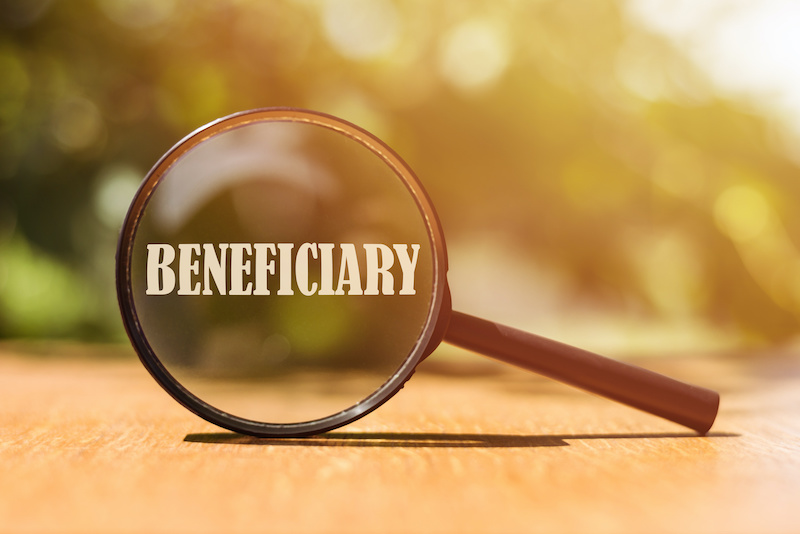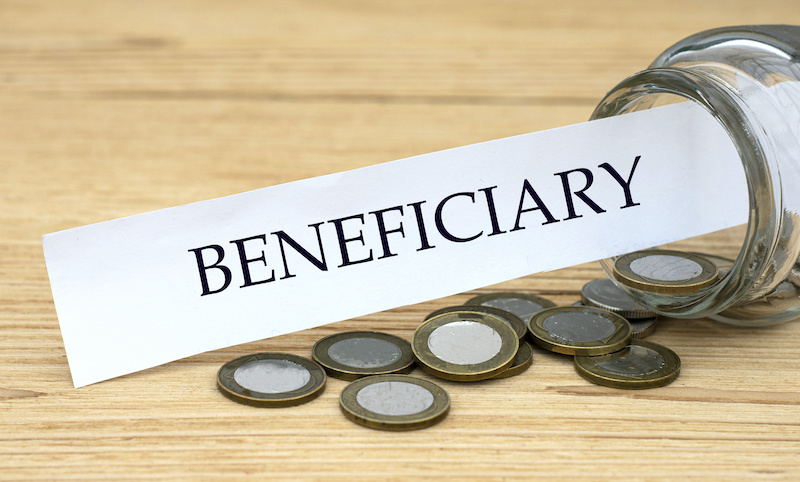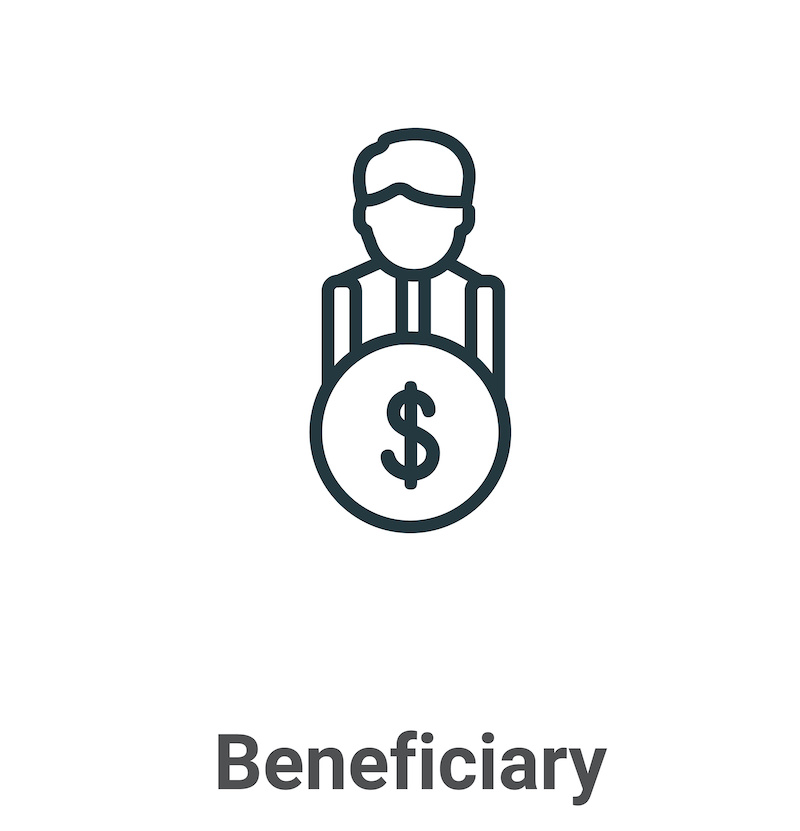
You regularly check the balances of your retirement, bank, and investment accounts. But when did you last check the beneficiary designations on these accounts? And really, all the other accounts that allow you to name a beneficiary?
It may have been years since you first opened an individual retirement account, bought a life insurance policy, or started putting money into a health savings account. At the time, you named someone—most likely your spouse, to inherit the money when you pass away.
However, you might have since married, divorced, or remarried without updating your beneficiaries. Or maybe another event, such as a birth or death in the family, has altered your estate planning strategy.
Beneficiary designations are a crucial part of an estate plan and a way to avoid probate. But they supersede instructions in a will or trust. Review these regularly to ensure that they align with your legacy goals.
Accounts That Have Beneficiary Designations

Beneficiary designations allow individuals to specify who will receive the funds or accounts upon their death, bypassing probate and allowing these items to pass more quickly to the people or entities named as beneficiaries.
Many types of accounts and financial instruments such as the following allow for beneficiary designations (including payable-on-death or transfer-on-death account designations):
- Retirement plans, such as a 401(k), 403(b), individual retirement account (IRA), Roth IRA, or pension plans
- Life insurance policies
- Annuities
- Checking and savings accounts
- Certificates of deposit (CDs)
- Health savings accounts (HSAs)
- 529 college savings plans
- Employer-sponsored benefits (e.g., group life insurance and employee stock plans)
- Brokerage accounts
- Mutual funds
- US savings bonds
How a Beneficiary Designation Works

Beneficiary designations take precedence for distribution over other documents in an estate plan. The individual or entity you name as an account beneficiary will automatically receive the money or account, usually without it passing through the court-supervised probate process.
A Beneficiary can be any of the following:
- A person, such as a spouse, child, partner, family member, or friend
- A trust
- A charity
- Your estate
It is also possible to name multiple parties as beneficiaries of the same account, allowing you to divide the money or account among them. For example, you could have half the money in your investment account pass to your spouse and split the other half between your two children.
Federal law, your state, or the account administrator may require you to list your spouse as a primary beneficiary. You will also note the amount they receive before you can list other beneficiaries. This is true unless the spouse waives their rights.
If you name your estate as a beneficiary, the money or account could be subject to probate.
Naming Primary and Contingent Beneficiaries

In addition to naming a primary beneficiary (the person first in line to inherit the money or account), most policies let you name at least one contingent (backup or secondary) beneficiary.
A secondary beneficiary receives the money or account if the primary beneficiary is unable or unwilling to accept it (e.g., they predecease the account holder or die at the same time). While primary and contingent beneficiaries provide some probate avoidance security, if there is no primary beneficiary to receive the money or account and no listed contingent beneficiary, the money or account could be subject to probate and distributed according to applicable state law.
With your estate planning attorney’s guidance, consider naming your trust, if your estate plan includes one, as primary or contingent beneficiary to help avoid the scenario where both your primary and contingent beneficiaries predecease you or are otherwise unable to take the funds.
Why You Need to Review Beneficiary Designations Regularly

A beneficiary designation supersedes any instructions in a will or trust about how to distribute money in an account or policy. If your will states that your money and property should go to one person, but your retirement account designates someone else as the beneficiary, the beneficiary designation on the account takes precedence.
Many people make the mistake of assuming the opposite: that their will or trust overrides beneficiary designation forms. It also poses problems when an account owner submits a beneficiary form to a plan custodian or administrator. That is, if they fail to confirm that the processed designation. In fact, there could even be instances where the author failed to complete the beneficiary form.
A beneficiary form that is not up to date can result in assets getting tied up in probate or not passing to the correct beneficiaries. Not updating a beneficiary form could have unintended consequences, such as leaving money or the account to a loved one who is now incapable of handling them or to someone you no longer want to receive the funds.
An estate plan should be regularly updated to account for life changes. This includes examining beneficiary forms when the following types of major life events occur:

- Divorce
- Marriage
- Birth or adoption of a child or grandchild
- Loss of a spouse, child, or other beneficiary
- The end of a relationship
- Closure of an account and moving the assets to a new account
- A plan administrator being bought by or merging with another financial institution
- An employer changing plan administrators for the benefits it provides
- Changes in the law that affect how money and accounts can be transferred at death
How to Change a Beneficiary Designation

Updating beneficiaries is straightforward, but the actual process can depend on the type of account:
- Many accounts can be checked and changed online.
- Some accounts require filling out paperwork.
- In certain states, a spouse’s written consent may be required to name someone else as primary beneficiary.
What Can Happen When You Do Not Update Beneficiary Designations
If you fail to name a beneficiary or do not name a contingent beneficiary in case something happens to the primary beneficiary, the money or account could be subject to probate upon your death.
The probate process can add costs and delays to settling an estate. Probated accounts and property must be reviewed by the court and distributed in accordance with a will instead of a beneficiary designation. If you do not have an existing will, the money or account would be subject to state intestacy laws, which determine who has the right to receive your money and property at your death. These laws typically give preference to a person’s spouse and children, but you may want somebody else to receive your money or accounts.
Simple Form, Complex Estate Planning Considerations

Beneficiary designations show how even small estate planning details can have a big impact. While the form to name a beneficiary on an account is typically easy to fill out, naming—or failing to change—a beneficiary can have a major effect on your estate plan and loved ones.
About Skvarna Law Firm in Glendora and Upland, California
Skvarna Law Firm operates offices in Glendora and Upland, California. We provide legal services. We cover San Bernardino, Los Angeles, Orange, and Riverside Counties. This includes several cities. Upland, Ontario, Rancho Cucamonga, Fontana, Colton, Rialto, Chino, Chino Hills, Glendora, Claremont, Pomona, La Verne, Montclair, San Dimas, Azusa, Covina, West Covina, Diamond Bar, Walnut, La Puente, Corona, Norco & Mira Loma. Visit SkvarnaLaw.com to learn more.


